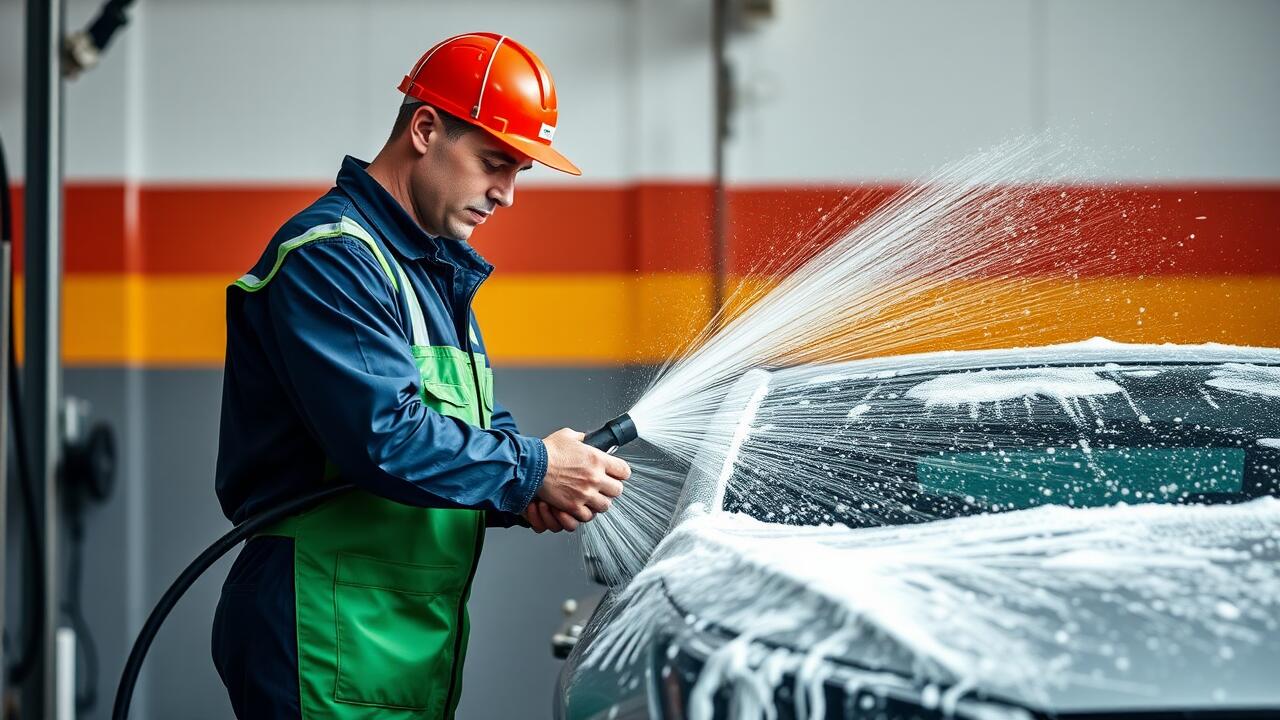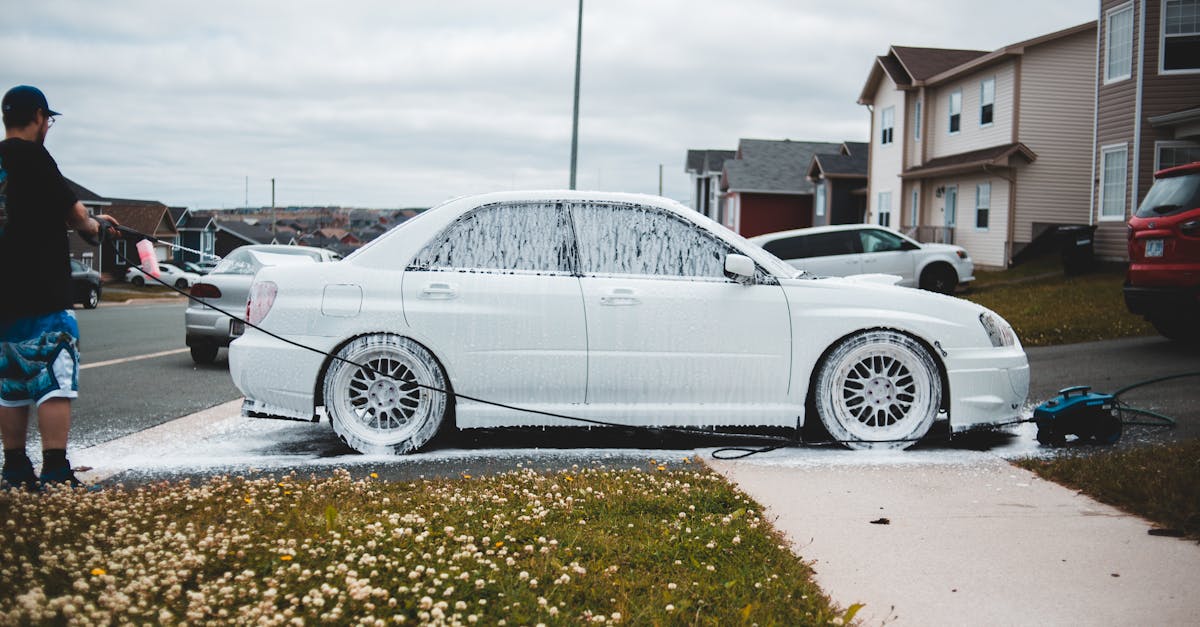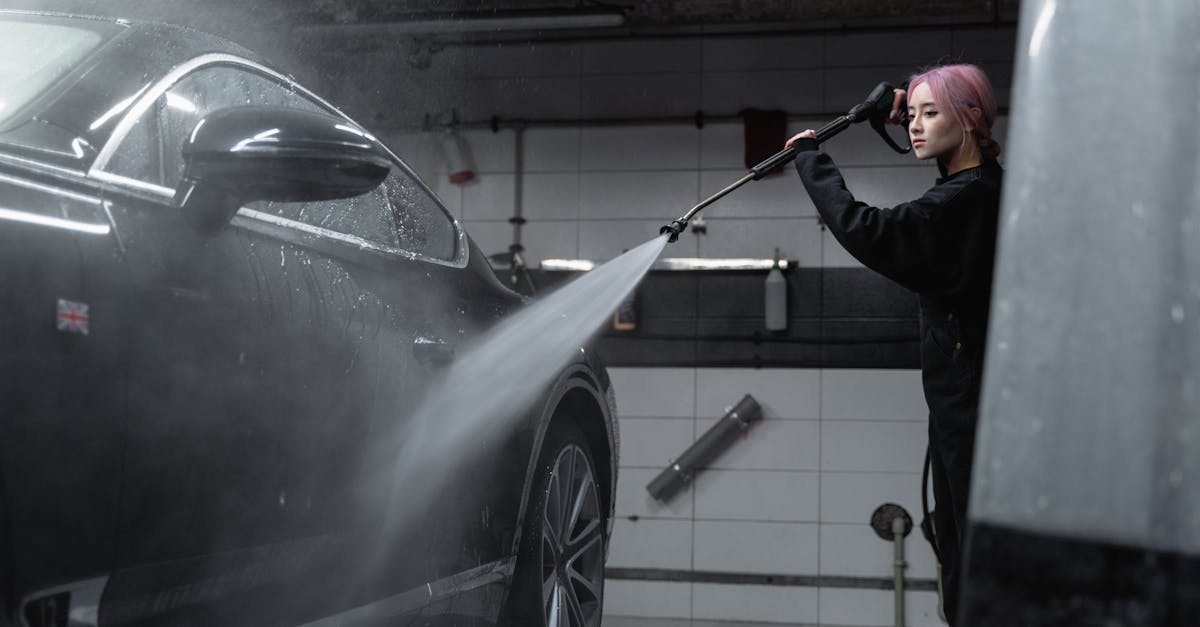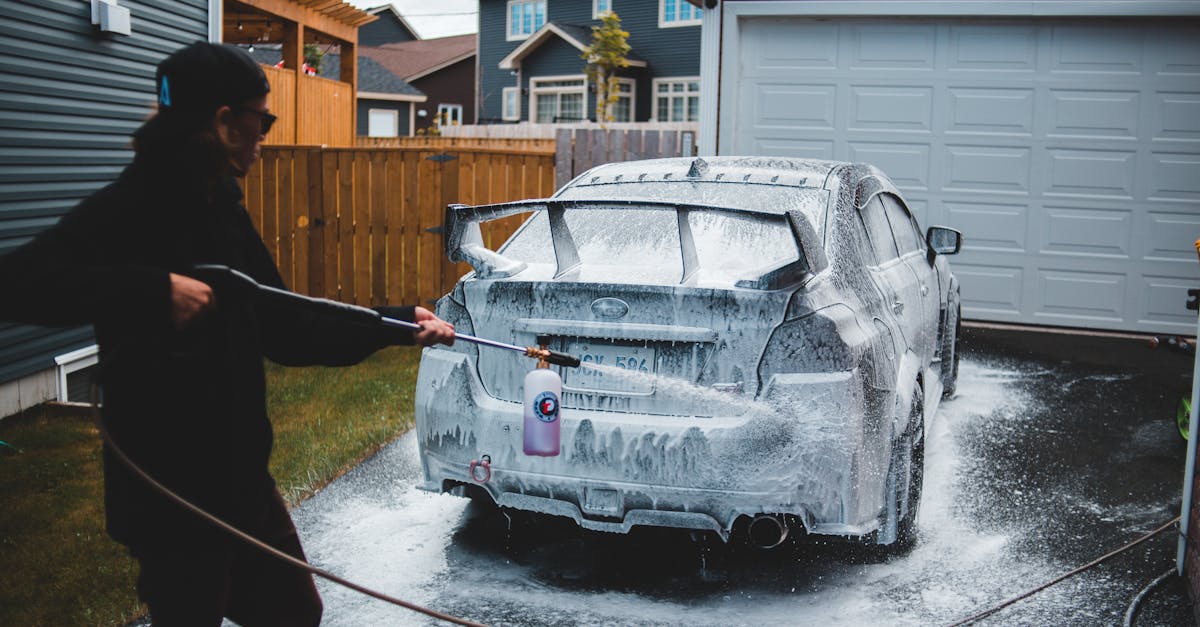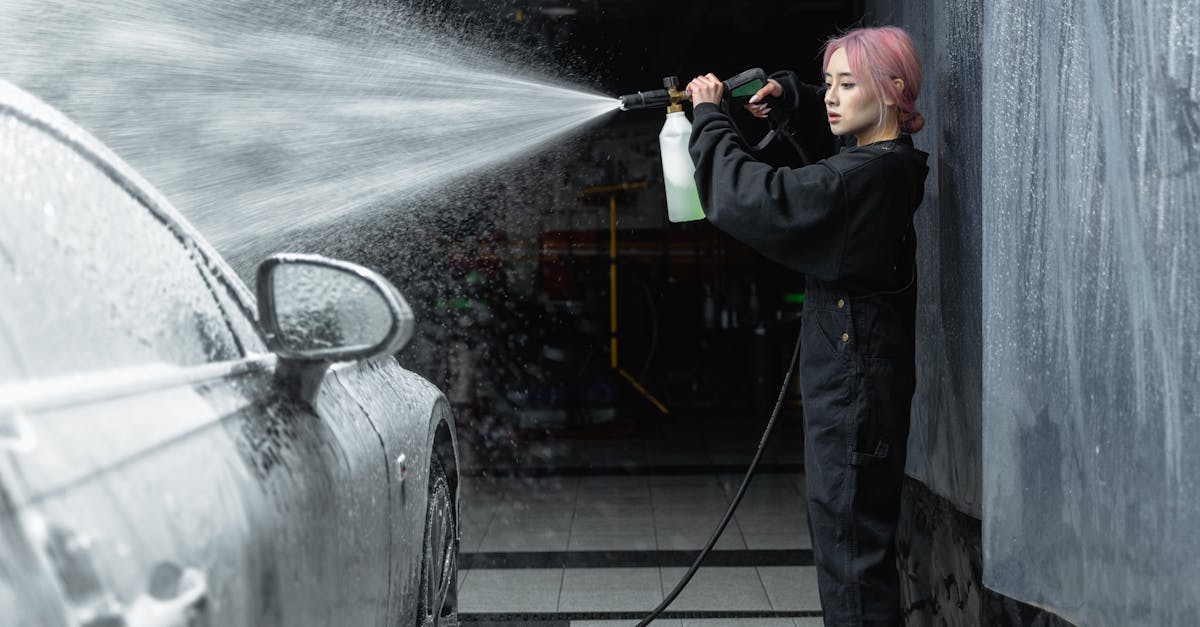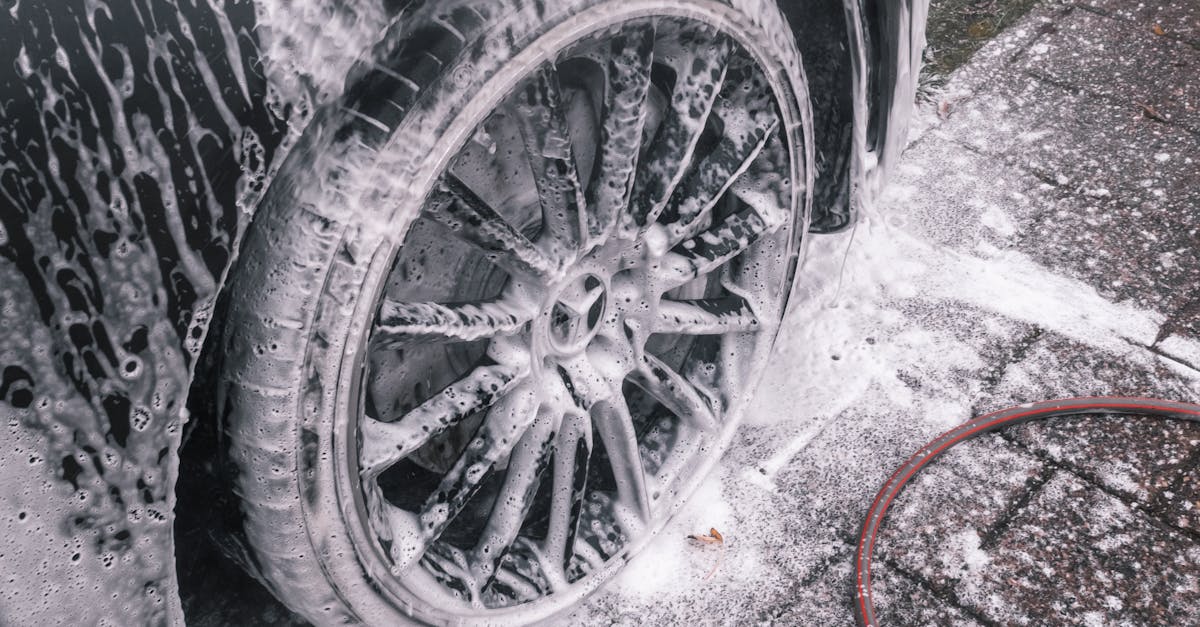
Noise Pollution
Pressure washers are known for their high decibel levels, which can create significant noise pollution in residential areas. This aspect can be particularly disruptive during early mornings or late evenings when many people are seeking peace and quiet. As homeowners engage in their cleaning tasks, the sound of the pressure washer can carry over to neighbouring properties, potentially irritating those who prefer a more tranquil environment.
The impact of noise pollution becomes especially pronounced in densely populated areas, where space between houses is limited. A Pressure Car Wash in such an area could lead to complaints from neighbours who are disturbed by the constant hum and roar of the machinery. Residents may find it difficult to concentrate on activities like reading or working from home, which can foster tension within the community.
Disruption to Neighbourhoods
The noise generated by a pressure washer can significantly disrupt the tranquillity of neighbourhoods. The intense sound levels often exceed what is generally considered acceptable for residential areas, especially if multiple households are using these machines simultaneously. This disruption can be particularly bothersome during early mornings or late evenings, when many residents seek some peace and quiet in their own homes.
Moreover, the use of pressure washers is not confined to personal spaces. When people engage in activities like a Pressure Car Wash in close proximity to others, it can lead to irritation amongst neighbours. The constant high-pitched whirring and water splashing can create an unpleasant atmosphere. The cumulative effect of several pressure washers operating can further contribute to the overall noise pollution in the community, making it challenging for residents to enjoy their surroundings.
Limited Versatility
Pressure washers, while effective for certain tasks, can struggle with various cleaning scenarios. For instance, delicate surfaces like wooden decks or painted siding require gentler methods. A pressure wash could lead to damage, such as peeling paint or splintering wood, which defeats the purpose of cleaning. This limitation restricts the range of applications for pressure washers, making them less versatile than one might hope.
Moreover, specific cleaning tasks do not align well with pressure washing techniques. For example, a Pressure Car Wash in an urban area may not always be permitted due to regulations or environmental concerns. Some vehicles may also be sensitive to high pressure, necessitating more careful cleaning approaches. Users must consider these factors before relying solely on pressure washers for diverse cleaning needs.
Not Suitable for All Cleaning Tasks
Pressure washers, while powerful tools for cleaning, are not suitable for every task. Certain surfaces can be damaged by the intense force of the water, particularly delicate materials like wood, thin metal, or painted surfaces. Using a pressure washer on these surfaces can lead to chipping, scratching, or even complete destruction of the finish. Homeowners should assess the material before opting for a pressure wash, as the potential for harm often outweighs the benefits.
Additionally, some cleaning tasks require more precision than a pressure washer can provide. For example, intricate details on outdoor furniture or delicate garden fixtures may be better suited for manual cleaning methods. Relying solely on a pressure washer for these tasks could result in an incomplete clean. In environments like a Pressure Car Wash in urban areas, where diverse materials need careful handling, the limitations of pressure washers become even more apparent.
Chemical Use
When utilising a pressure washer, the use of detergents and chemicals can present significant concerns. Many users opt for specialised cleaning solutions to enhance the effectiveness of their washing tasks. However, these products can be harsh and may contain substances harmful to the environment or human health if not used correctly. Pressure Car Wash in certain locations may exacerbate this issue, potentially leading to contamination of local water sources if chemicals are not safely managed.
This reliance on chemical agents also requires careful adherence to manufacturer guidelines to avoid damaging surfaces or creating hazardous conditions. Incorrect application or the use of inappropriate detergents can result in repercussions ranging from ineffective cleaning to environmental degradation. Individuals operating pressure washers in residential areas, such as those offering Pressure Car Wash in neighbourhoods, should be mindful of these risks, ensuring they adopt eco-friendly approaches wherever possible.
Potential Hazards from Detergents
Many commercial pressure washers use detergents and chemicals to enhance cleaning effectiveness. These substances can pose significant risks to both human health and the environment. Some detergents contain hazardous ingredients that may lead to skin irritation or respiratory issues if inhaled. Home users might underestimate the potential dangers, resulting in improper handling or insufficient protective measures.
When opting for a Pressure Car Wash in various locations, it’s essential to consider the environmental impact of chemical runoff. Chemicals can easily seep into local water supplies, harming aquatic life and ecosystems. Users should be aware that excessive or reckless use of these cleaning agents can contribute to long-term contamination, raising questions about the sustainability of such cleaning practices.
FAQS
What are the main disadvantages of using a pressure washer?
The main disadvantages include noise pollution, limited versatility for certain cleaning tasks, and potential hazards from detergents used with the machine.
How does noise pollution affect the use of pressure washers?
Pressure washers can create significant noise, which may disturb neighbours and disrupt the quiet of residential areas, especially during early morning or late evening use.
Are pressure washers suitable for all cleaning tasks?
No, pressure washers are not suitable for all cleaning tasks. They can be too powerful for delicate surfaces and may cause damage if not used correctly.
What are the risks associated with using chemicals in pressure washers?
The use of detergents and chemicals can pose potential hazards, including skin irritation, environmental impact, and the risk of harmful residues if not properly rinsed.
Can the noise from a pressure washer lead to disputes with neighbours?
Yes, the loud noise generated by pressure washers can lead to disputes with neighbours, particularly if used during inappropriate hours or without consideration for others’ peace.
